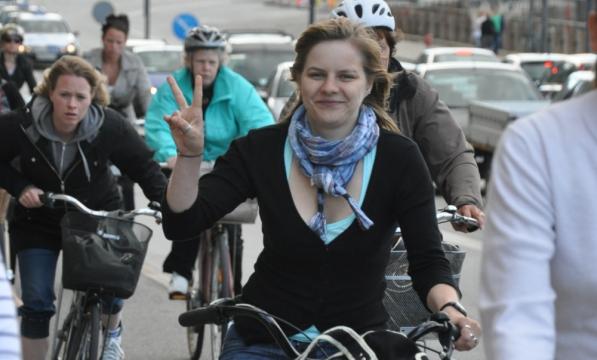Create jobs and save lives in their thousands! Cycling is the key, says major new report

This is not wishful thinking, according to WHO. All that needs to happen is for major European cities to up their game and follow the example of Copenhagen, where 26% of all city trips are already cycled.
A boost for cycling on this scale would, the report says, see new jobs in the cycle trade, in urban development and new mobility schemes. In turn, this would help reduce both greenhouse gas emissions and health risks. Given that the overall costs associated with the environmental and health impacts of unsustainable transport can be up to 4% of a country’s gross domestic product (GDP), a concerted push for more cycling can only be a good thing.
WHO's thorough and authoritative report goes to show just how much cycling offers to everyone.
It strengthens local economies in both urban and rural areas, supports local businesses and property values, boosts the economic productivity of a healthy and satisfied workforce, and enables disadvantaged groups to gain skills and access employment opportunities.
Roger Geffen
CTC Campaigns and Policy Director
The report, 'Unlocking new opportunities' was released by the United Nations Economic Commission for Europe and the WHO Regional Office for Europe at this week's high-level gathering of European ministries of transport, health and the environment in Paris. Based on a wealth of studies from all over Europe, it offers an inspiring insight into the benefits that cycling genuinely offers to national and local economies.
This is perfect timing for CTC's new Space for Cycling campaign, which is calling on councils to make streets better so that anyone can cycle anywhere, and seek the necessary funding. Please support it!
CTC's campaigns briefing on cycling and the economy looks at the subject in more detail.

